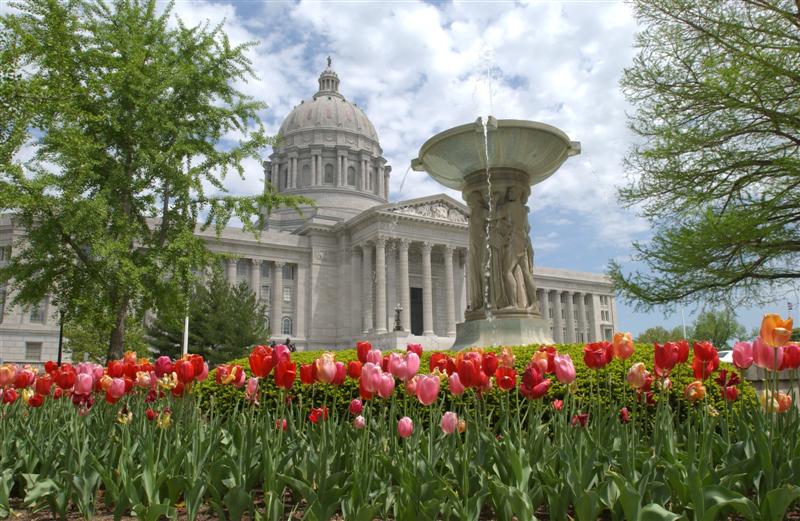JEFFERSON CITY, Mo. — Sen. Doug Libla knows it’s not easy to pass a tax increase in Missouri. But he says there’s one big reason that lawmakers should support his deal to raise Missouri’s fuel tax to fund roads projects.
The reason? Evidence.
Evidence, he says, shows that Missouri’s roads are critically underfunded. Evidence, he says, shows that construction costs are up at least 200 percent since the last fuel tax increase. Evidence, he says, shows that cars are more fuel efficient, and the purchasing power of Missouri’s tax is now roughly 8 cents. When you factor in that one-third of all road funds are immediately sent to local cities in counties, Libla says MoDOT is essentially operating on roughly a 5 cent per gallon fuel tax.
“We can’t stick our head in the sand,” Libla said.
Missouri lawmakers have yet to rally around a legislative solution to the state’s woefully underfunded transportation infrastructure, but that hasn’t stopped Libla from moving forward with what he calls his “2+2+2” plan.
Libla, a Poplar Bluff Republican, wants to increase Missouri’s gas tax, which has been flat for 23 years, by a few cents every year for three consecutive years from 17.3 cents to 23.3 cents per gallon. After 2018, Missouri’s gas tax would then increase every year with inflation.
Libla’s plan was unanimously voted out of the Senate Transportation Committee, of which he is chairman, on Wednesday. But moving forward with any tax increase in the Republican-dominated legislature is an uphill climb, particularly after voters solidly rejected a tax increase on last year’s August ballot that would have funded roads projects for a decade.
“Everyone in the Senate has one vote, and they’re gonna get to decide whether or not they think this is something that’s important to the state,” Libla said. “And they can vote yes or no on whether or not we move this state forward.”
For Libla and other lawmakers eyeing the state’s roads, the situation is becoming dire. MoDOT officials announced earlier this year that if current funding is not increased, they won’t be able to meet their minimum requirements for matching federal dollars when their budget drops to about $325 million in July of 2016. Once that happens, federal dollars will no longer flow to Missouri road projects.
Missouri receives matching funds on a 4-to-1 basis from the federal government. Once the budget for roads reaches a critical low point, Missouri will be sending money that ultimately contributes to building roads in other states.
“In 2014, we sent about $820 million dollars to the federal government,” Libla said. “We already send the money up there. We’ve paid this tax. What will happen is, if we don’t have enough construction funds to apply for 4-to-1 maching, the funds will go somewhere else. Missourians will have built roads in Alabama or Arkansas.”
MoDOT has spent the last year or so since the August ballot defeat sounding the alarm. First, transportation officials announced that by next year, only roughly one-quarter of Missouri’s massive 34,000-mile road system would get scheduled maintenance and upkeep. Libla’s plan wouldn’t pour much extra cash into MoDOT, which in the last few years has closed down facilities, sold off equipment and reduced staff by 20 percent.
Once fully implemented, Libla’s plan is effectively a $160 million stopgap which would allow Missouri to continue to meet minimum financial commitments for federal road funds.
Missouri’s transportation funding has plummeted over the last decade even as some of the state’s primary roads are in dire need of repair. The more than 200-mile stretch of I-70 is 50 years old, but was only built with about a 20 year intended shelf life. Repairing or expanding the state’s busiest interstate could cost several billion dollars, a figure that is simply impossible for MODOT officials to reach with current funding mechanisms. The state has more than 10,000 bridges, over half of which are more than 50 years old.
Collin Reischman was the Managing Editor for The Missouri Times, and a graduate of Webster University with a Bachelor of Arts in Journalism.




